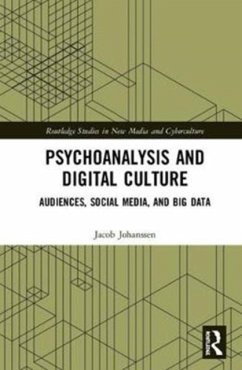
Digital Labour and Karl Marx
Versandkostenfrei!
Versandfertig in 6-10 Tagen
51,99 €
inkl. MwSt.
Weitere Ausgaben:

PAYBACK Punkte
26 °P sammeln!
How is labour changing in the age of computers, the Internet, and "social media" such as Facebook, Google, YouTube and Twitter? In Digital Labour and Karl Marx, Christian Fuchs attempts to answer that question, crafting a systematic critical theorisation of labour as performed in the capitalist ICT industry. Relying on a range of global case studies--from Chinese workers at Foxconn Shenzhen to miners in the Democratic Republic of Congo--Fuchs sheds light on the labour costs of digital media, examining the way ICT corporations exploit human labour and the impact of this exploitation on the live...
How is labour changing in the age of computers, the Internet, and "social media" such as Facebook, Google, YouTube and Twitter? In Digital Labour and Karl Marx, Christian Fuchs attempts to answer that question, crafting a systematic critical theorisation of labour as performed in the capitalist ICT industry. Relying on a range of global case studies--from Chinese workers at Foxconn Shenzhen to miners in the Democratic Republic of Congo--Fuchs sheds light on the labour costs of digital media, examining the way ICT corporations exploit human labour and the impact of this exploitation on the lives, bodies, and minds of workers.














